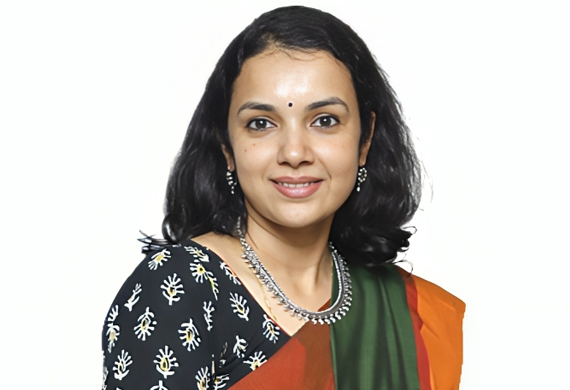
The Art & Science of Brand Building in Modern Marketing
By: Aparna Mahesh, Chief Marketing Officer, Great Learning
Aparna has over 20 years of experience under her belt, having led marketing initiatives for several leading brands like BankBazaar, FreshMenu, and Quikr. Currently, she is responsible for the brand's global marketing strategy, the development and delivery of brand communication, strategic marketing partnerships, and user engagement.
In a conversation with Women Entrepreneur India, Aparna shares her views and thoughts on the role of empathy and understanding of consumer needs in the branding process as well as the key digital marketing strategies that women leaders can leverage to make a brand more prominent and memorable
In your opinion, what are some of the key challenges or opportunities that women leaders face in the world of brand building and marketing?
All marketing leaders face similar challenges and I don’t believe there is a gender angle at play here. In certain categories, there may be a natural advantage by gender - e.g. women in beauty/health/ home care marketing or men in automobile marketing, etc. But there are also enough and more success stories of the reverse as well. Hence, it eventually boils down to how solid one is functionally.
Marketing as a function usually sees excellent diversity at the junior and even mid-levels, but then the drop-off starts to happen, and as a result, we see far fewer women at the senior levels. This will remain a pressing challenge for all leaders to solve.
How can we measure the success and impact of a brand-building strategy, and what metrics or KPIs are prioritized?
The starting point for building any brand-building strategy is the clear identification of goals. Unlike performance marketing, brand building is a long-term play and it’s important to structure the expectations accordingly. Sure, there could be some short-term wins, but sustained results take time to set in. Typically, we look at top-line brand metrics as the first set of goals - awareness, preference, and likelihood to buy/recommend - and whether these are moving in the right direction when brand investments are made. These should be checked regularly so it is clear how long the impact of the brand campaigns lasts. The next set of metrics is around purchase behavior - did people buy, and what was the uplift compared to non-advertising periods? It’s important to note that here the results of performance marketing Vs brand marketing can vary quite a bit. The former aims to tap people who are already in-market while the latter is creating/expanding the market. Both would ideally need to work in tandem.
What is the role of empathy and understanding of consumer needs in the branding process, and how can women leaders excel in this aspect?
A deep understanding of the customer is the foundation for a successful marketing strategy. Humanizing the customer and thinking of him/her as an individual rather than thinking of them as one large faceless, homogenous group, usually helps us get a much more nuanced understanding. You start to see the customer around you, reflecting on your friends or neighbors or family and every interaction adds to your understanding of a different angle of the customer. I think women have an innate ability to better understand more subtle things - the unstated the not-so-obvious. That’s one of the reasons they thrive in market research, where their ability to look deeper and unravel different layers of consumer insight is highly valuable. They are also naturally more empathetic, nurturing, and comfortable with a whole range of emotions - all of these make women excellent marketers and leaders in general.
In a rapidly evolving digital landscape, what are the key digital marketing strategies that women leaders can leverage to make a brand more prominent and memorable?
In this digital age, data is king and whoever is comfortable with data and can quickly convert it into actionable insights, will have the upper hand. Digital marketing requires a very high level of agility as time is no longer a buffer that marketers have. Consumers can discover new products, evaluate, and make purchase decisions very quickly in this digital era and hence, marketers need to be extremely watchful for trends even before they become mainstream. Having a clear tactical and strategic arsenal is important for marketers.
How do professionals stay updated with the latest trends and technologies in marketing, and how can we ensure that the team is equipped to adapt to these changes in the industry?
I can say this - the amount I have had to learn and relearn in the last 5-7 years of my career has been a different order of magnitude compared to what was the case in the early part of my career - which started before the digital wave. The pace at which skills are becoming obsolete today is quite staggering and the marketing function is no exception. Marketers need to make a conscious effort to stay abreast of global trends in tech that are affecting marketing. Regularly connecting with the marketing fraternity to get a sense of what others are doing, attending industry events, etc. can all be ways to ensure they are not caught unawares. Apart from this, regularly staying connected with the consumer is extremely critical.


.jpg)



